With details of the workshop and more, here are the latest newsletters:
October Zoom Workshops
Make
time for your writing!
Hello
friends, we’ve got another great selection of Zoom workshops for you this
month looking at lots of different aspects of craft and the writing life.
Starting at just £5 for 1-hour sessions, even if you can’t make the live time
you’ll get sent the recording afterwards if you buy a ticket. October Workshops
SATURDAY 14TH – 16.00 – 18.00 BRITISH SUMMER
TIME
FAIRY
TALES MEET CRIME FICTION WITH TANIA HERSHMAN (ONLY 7 TICKETS LEFT)
Writers
have been using fairy tales as inspiration for centuries, borrowing characters,
structures and general fairytaleishness for their short stories. And many
fairy tales involve crimes: Goldilocks’ breaking & entering of the Three
Bears’ home; Jack’s murder of the beanstalk-based giant; Bluebeard’s heinous
serial killing; the Snow Queen kidnapping Kai, and so many more. So it only
seems natural to bring these two genres together and see what ensues. Come
join us and see what you create in this collision! Workshop host: Tania Hershman’s second poetry
collection, Still
Life With Octopus, was published by Nine Arches Press in July
2022 and her debut hybrid novel, Go
On, a “fictional-memoir-in-collage”, was published by Broken
Sleep Books in Nov 2022. Tania is the editor of Fuel: An Anthology of Prize-Winning
Flash Fictions Raising Funds to Fight Fuel Poverty, published in
Feb 2023. Her
poetry pamphlet, How
High Did She Fly, was joint winner of Live Canon’s 2019
Poetry Pamphlet Competition and her hybrid particle-physics-inspired book ‘and what if we were all allowed to
disappear‘ was published by Guillemot Press in March 2020. Tania is
also the author of a poetry collection, a poetry chapbook and three short
story collections, and co-author of Writing
Short Stories: A Writers’ & Artists’ Companion (Bloomsbury,
2014). She is co-creator of the @OnThisDayShe Twitter account, co-author of
the On This Day
She book (John Blake, 2021), and has a PhD in creative writing
inspired by particle physics. www.taniahershman.com SATURDAY 21ST – 16.30-18.30 BRITISH SUMMER
TIME
WHAT’S YOUR STORY REALLY ABOUT?
WITH DEBBI VOISEY
Identifying
themes, sub-themes, micro-themes, and finding the true heart of your story.
From these realisations, you can open your idea up to create more than one
story – ideal if you are working on a connected collection or a
novella-in-flash. With tips, exercises and prompts, and plenty of writing
time. Workshop Leader: Debbi Voisey writes flash fiction,
short stories and novels. She had two novellas-in-flash published in 2021 (Only About Love with
Fairlight Books, and The
10:25 with Flash: The International Short-Short Story
Press). Only About
Love received a special mention in the 2022 Saboteur Awards
and was shortlisted for the Arnold Bennett Prize 2022. Debbi is
currently seeking an agent and publisher for her novel, The Reset, which is
written in short, flash-like chapters. She is also working on her next
novel whilst running creative writing workshops, events, and courses on
Zoom, and offering mentorships and guidance for people working on writing
projects. She also works with Retreat West running Friday Flashing sessions,
the Monthly Micro workshop and the monthly feedback group for our community
members. SATURDAY 28TH – 18.00-20.00 BRITISH SUMMER
TIME
FABULOUS
FIRST CHAPTERS WITH AMANDA SAINT
In
this 2-hour workshop you’ll discover all the things your first chapter needs
to do to ensure your reader connects with the character, world and story
you’re creating. We’ll look at first chapters in lots of different genres to
show how it’s done and you’ll leave knowing how to make your first chapter
the best that it can be. Workshop Leader: Amanda Saint started Retreat
West in 2012 and launched Retreat West Books in 2017 (Winner: Most
Innovative Publisher 2020 Saboteur Awards). She has been designing and
teaching online courses, and live workshops, for many years and has worked as
an editor on hundreds of manuscripts. She’s the
author of two novels, As
If I Were A River (2016), which was longlisted for the
Guardian Not The Booker Prize, a NetGalley Top 10 Book of the Month and a
Book Magnet Blog Top 20 Book of 2016; and Remember Tomorrow (2019 ). She’s just
completed a novella-in-flash, has almost finished a flash fiction collection,
and is just starting work on her third novel. Amanda is also training to be a
mindfulness teacher and writes The Mindful Writer. Amanda’s
stories have been widely published; long/shortlisted in the Mslexia Flash
Fiction Competition, Fish Flash Fiction Prize, Ink Tears Short Story Prize,
Cranked Anvil Short Story Competition, Flash 500 and V300; nominated for Best
Small Fictions 2023; and won the Editor’s Choice Prize at 101 Words. Happy
writing everyone! Hope to see you at a workshop soon! With
love, Thanks
for reading and good luck with all of your writing projects! If you
know of any writers who would enjoy our posts, then please do share this with
them and help spread the Retreat West story-loving word! And if
you’d like to develop your craft further then check out our subscription
packages that include courses and feedback. The first workshop for the first course that I
am uploading to Substack went live on 14th July. Come write with us! You can
see all of the courses that are included with paid subscriptions here. Subscriptions start at just £8 a
month.
© 2023 Amanda Saint |
||||||||||||||||||||||||||||||||||||||||||||||||||||||||
Craft Development: Movement in Flash
The
Suggestion of Plot and Instilling a Narrative Drive
“Is plot essential in flash fiction? I
can only stress the importance of plot in any literary genre. And though
flash fiction is its own little devil, getting away with bending many rules,
this genre is not excused from plot.” ― Kim Chinquee Hello
friends, This
month I want to look at flash fiction and creating a feeling of movement so
that something actually happens in your story. A lot of the flash fictions we
read at Retreat West and WestWord
don’t have that suggestion of plot so they read like a report of an incident,
or an amusing or harrowing anecdote. A small portion of today’s newsletter
content is part of the Flash Mini Course that I designed and taught with
Mary-Jane Holmes. The Suggestion of Plot
In flash
fiction, there is little room for complicated, parallel or subplots. In fact,
we have to be so close to the climax of the story that plot is really
compressed to the “now” moment on the timeline or has to use other tools to
expand the writing’s ability to present a sense of a larger story. Here is
an extract from the Rose Metal Press Field Guide to Flash Fiction underlying
the importance and nuances of plot in flash. From Kim Chinquee’s essay,
“Flash Fiction, Prose Poetry, and Men Jumping Out of Windows.” Is [plot] essential in flash fiction? I can only stress
the importance of plot in any literary genre. And though flash fiction is its
own little devil, getting away with bending many rules, this genre is not
excused from plot. In many cases, the sequence of events in a particular
flash may be difficult to distinguish; likely, in flash fiction, plot is
often presented in nontraditional ways, arising through other elements
necessary to make a successful literary story—character, language, point of
view, setting, structure, voice, each element can be accountable for plot.
Plot in flash is inclusive and exclusive. For example, rhythmic language in a
piece can suggest playfulness, and juxtaposed with some eccentric detail, the
combination of these elements here can make a good flash fiction. Deadpan
tones of horrifying accounts can justify a plot line. A third-person flash
ending in first person can twist a piece and thus render it successful.
Providing descriptive elements and omitting events can also work. When used
effectively, omission of details can gear a plot. Plot is vital in flash
fiction, propelling it to its brevity. In this
story look how the advice about using rhythmic language to add to plot is
used. Down the Long, Long Line
Mary-Jane
Holmes The
repetition of ‘there’s the..’ gives us the sense of the train moving forwards
and of the story moving too. Each one adds another layer to the life of the
woman looking out of the window and seeing each of the things that are
listed. And in
this one, I have used the switch of narrative point of view from the plural
to the singular to bring the change that gives this very short story a sense
of plot. Playing Nurses by Amanda Saint
We
wanted to be nurses. What a wonderful past-time it seemed to be; not like a
job at all. When mum was in her uniform, ready to go to work, we coveted her
upside down watch. We wanted one too, so that we could count heartbeats. Our
visions were of hospital wards that were more like boudoirs: soft feather
pillows, gossamer curtains and muted lights. Beds filled with glamorous,
lounging patients lifting subtly scented wrists to learn the patterns of
their pulses. We
made our own upside down watches with cardboard and pens, fastened them to
our t-shirts with sticky tape. We pressed our fingers into each other’s
wrists, sometimes so hard that it left red marks. Counting heartbeats
endlessly. There were no doctors – it wasn’t that sort of game. Occasionally
our teddies and dolls joined in but it wasn’t the same. We liked the feeling
that human wrists gave – that faint rhythmic pulsing pushing gently against
our fingertips. We saw a TV programme once where a man was checking for
heartbeats on someone’s neck, so we did it like that for a while too. The
beat was harder to find but much stronger. One
day, the beat in the neck was proving elusive but we kept searching, pressing
and squeezing. Searching, pressing and squeezing. It started to hurt. We
wanted to stop but we couldn’t. The search for the beat drove us on and on.
Searching and pressing and squeezing. Until, in the end, there was no beat to
be found. No more beats. No more little pulses pushing against our
fingertips. No more we. Just an I. The
feeling of movement, plot and tension also comes from the repetition of
‘searching, pressing and squeezing’ in that final paragraph where it starts
to become clear that this game is not as harmless as it first seemed. Narrative Drive in Flash Fiction
Plot
is also an essential tool in providing forward compulsion through the story.
Even though it is a very short form you need a narrative driver to compel the
reader on. A lack of plot and narrative drive can stop a reader from
committing to a flash in just the same way as it can in longer form stories. In an
interview Meg Pokrass did for the Retreat West blog she summed up how you
imbue a flash with plot and narrative drive in such a small word count as the
loaded moment:
"Great flash fiction
requires a feeling of dramatic urgency—something which we, the reader, sense
in every word. Emotional potency is key." Do read the full interview as it is packed full
of brilliant advice! This
ties into that flash fiction has to begin in the middle of the action -
setting the story off as close to the climax as you possibly can. Often when
we are editing our flashes, you can usually cut the first paragraph or two of
a first draft as that is us finding our way into the story. Look out for that
loaded moment. The
following stories have put the loaded moment to great use early in the story
to give us that feeling of dramatic urgency that gives the flash a narrative
drive:
What stories can you recommend that start
with a loaded moment that compels you on? Do let me know by replying to the
email or commenting on the post on the Substack site. I love finding new
examples! Questions to ask your drafts
Whenever
I have written a flash story from prompts, I always find it helpful to ask
the following questions to find out what it is I am writing about and how I
can make the next draft work harder to achieve what I want it to:
Writing Prompt
Write a
story where a character is coming face to face with someone important for the
first time in many years, or the first time ever. Start with the meeting, get
rid of the set-up and preamble that leads to that pivotal moment. Think about
how you can bring in the back story the reader needs to know about these
characters without sacrificing your narrative drive and still leaving things
implied rather than said. Set a timer for 30 minutes and aim to write a
complete first draft of a flash fiction (max 1000 words) in that time. When you
edit the story, think about how you can use rhythm and language to add to the
feeling of forward movement. Happy
writing and editing! With
love, If you
know of any writers who’d enjoy this post, please share it with them. If you’d
like to develop your craft further, then please do consider signing up for a
paid subscription, which includes lots of courses to get you writing short
and long-form fiction. See what’s included here.
© 2023 Amanda Saint |
The Mini Novel Course
Workshop
1: From inspiration to outline
The full post of this workshop is for paid subscribers and
free subscribers can see a short preview. You can sign up for just £8 a month
and stay just for the duration of this course, which lasts for 12 weeks as
the workshops are posted every fortnight. If you sign up you’ll get access to
the last course that ran ‘Experiments in Flash’ too and get great tools and
resources to help you write your novel. You’ll be able to share your work for
feedback too in the private chat. Hello
writing friends, Welcome
to the Mini Novel Course. In the 6 workshops that make up this course I’ll be
sharing some tools and resources you can use to get off to a great start with
a novel project. There are no writing rules, so this course won't provide a
formula for writing a novel but will hopefully give you lots of inspiration
and ways to make writing a draft of a novel quicker, easier and fun! The
workshops are:
You'll
take your idea and flesh it out while discovering whose story it is and which
point of view it will be best to tell it in.
Characters
are what make your novel stand out to readers so you'll get to know them
inside and out.
You'll
think about where your story takes place and why, and what that can bring to
character, atmosphere and plot development.
We'll
look at all the things beginnings have to do and analyse examples from famous
novels to see how it's delivered. Then you'll write your own!
How to keep
your reader gripped and your story flowing by playing with your prose.
How to
carry on once the course is over - you'll get tools for overcoming obstacles
to get to the end. From inspiration to outline
This
week the focus is on finding the story within your idea, choosing who's best
to tell it for you and how, and taking your idea and fleshing it out into an
outline aligned to story structure. So
before you read on, please take a moment to add a comment below introducing
yourself and your novel idea. You don't have to go into great detail at this
point but give us a high-level view of what the novel is about and whose
point of view you plan on telling it through. I want
to share some of my experience with you now as it's in writing two novels
myself, that I developed the process in this workshop. When I wrote my first
novel, As If I Were A
River, I did no plotting and planning whatsoever. Why would I?
I’d always wanted to be a writer, I'd read novels voraciously ever since I
was a child, I definitely knew how to do this. So I set off writing my story
knowing just the premise, or my inciting incident, of a woman whose husband
went missing. Basically I knew what set the story off and nothing beyond
that. The writing of this book looked a lot like this... I
went off on tangents, down dead ends, got lost and very confused. It took me
2 years from writing the first scene in a creative writing class to finally
finishing a very short first draft of just under 50,000 words. To properly
finishing it and it being published was in total 6 years. So when
I started writing my second novel, Remember
Tomorrow, I took a different approach that made the writing of it
look a lot more like this... I
had a complete first draft of 55,000 words in just 8 months that was focused
and had a good narrative drive in place. So I cut 16 months off the time it
took me to write a first draft by doing some planning and what I call
plotting, which is something that real plotters would definitely shake their
head at. And Remember Tomorrow is much
more complex and ambitious than my first novel too. It has a much larger cast
and takes place in the future so I had to create a whole different world as
well.
© 2023 Amanda Saint |
||||||||||||||||||||||||||||||||||||||||||||||||||||||||||||
A Word With...Ingrid Jendrzejewski
Our
monthly interview series
A Word With… is our monthly interview series in which we chat to writers,
journal editors and indie publishers about words, stories and life. We are
delighted to welcome Ingrid Jendrzejewski this month. Ingrid currently serves
as the Editor in Chief of FlashBack Fiction, an editor at Flash Flood, a flash editor at JMWW, and she is one of the co-directors of National Flash Fiction Day (UK). She
runs workshops on editing, prose poetry and hybrid forms, and we have had the
pleasure of her running them for us a few times now. She’s with us again this
weekend running a session at our Online Flash Fest on writing funny flash
fictions and next month a 1-hour workshop looking at titles: Lions, and Titles and Bears, Oh My! So
here’s what she had to say to my questions… Ingrid, as a writer, you seem to be
happiest creating flash fiction stories with over 70 publications listed on
your website. I'm sure there are many more. Can you tell us what you love
about this form and what attracts you to writing flash? Thank
you so much for such great questions; it’s a real pleasure to chat with you! I think
what I love most about short-form writing is the process of
distillation. Every observation, emotion, description, happening and
thought gets reduced to such a pure form, and when everything works together,
you get this end product that is somehow dense yet airy, super-specific yet
open-ended, highly constrained yet limitless. There’s no room for
equivocation or self-indulgence, and every character on the page gets to pull
more than its own weight. A well-rendered flash feels like a parlour
trick that unfolds into a new universe — it’s such an exciting thing to
witness. I wrote almost
exclusively flash when my daughter was super small. I was sleep
deprived and writing in little cracks of time, so I was drawn to short pieces
that I could hold in my head and mull over whilst doing parenting
things. Now that my daughter is older and sleeps through the night, I
have a number of longer projects on the go, but I keep coming back to
flash. There’s a unique thrill to writing short…I think it’s the way
words take on all these extra layers and stratifications when you compress
them. Writing flash is like constructing little puzzles, tiny wondrous
objects. It’s addictive! After doing a degree in creative writing
you then did another in physics — can you tell us a bit about this? Did the
writing drive an interest in physics or was it always something you wanted to
do? How do you bring the two together now in your writing practice? I have
always loved both the arts and sciences and I found it impossible to choose
between them, so ended up doing both! I’ve combined them in various
ways, such as work in computer game design and research on software for
helping people with limited mobility maximise information output with minimal
gestures. Both involve thinking about language as well as programming
and, in the latter case, information theory. I do
think this big distinction we make between ‘science’ and ‘arts’ is a bit
arbitrary…. Science is nothing without storytelling…when we develop
experiments, we’re creating and editing stories about how we think the world
works, based on the results we get. And if we can’t tell others what
we’ve learned or how we think our work fits into or pushes against the larger
stories we have about what we think we know to be true, our work is
useless. We have constraints and rules in our storytelling, and we trust
a community of readers to respond to our work and check for errors and help
make it better. Science requires creativity and flexible
thinking. I am sure that my experience with writing helped immensely
with problem-solving and communication. On the
other side of the coin, I think my writing has been immensely influenced by
my training in science. Even in an off-the-wall piece, I have a sense of
the critical path I need to follow, and what ‘evidence’ I need to include or
exclude to take the reader on the journey from Point A to Point
B. Writing a lab report or a scientific paper trains one to be succinct,
specific, precise. As with flash, there’s no space for tangents, flights
of fancy, or wheel spinning. A science degree is incredibly good
training for flash writing…and I’ve been pleasantly surprised-not-surprised
to find out a lot of great flash writers that I admire have a science or
engineering background. At this
particular moment, I’m doing more writing and teaching about writing than I
am science or programming, but I do keep a few projects going in the
background, for fun. I’ve also been involved with projects like Quantum
Shorts, a flash competition that looks for flash with a quantum physics theme
(you can look for a new announcement from them soon) and some science/flash
projects I’m running later this year. You are currently editor-in-chief of
FlashBack Fiction, which specialises in publishing historical flash fiction.
What inspired you to start this journal and what has running it taught you as
a writer and editor? Working
on any journal or competition gives one a good feeling for common themes and
things that commonly go wrong in flash. However, with our historical
focus, this project has particularly underscored the incredible power that
specific detail and thoughtful diction have to pull a reader into a very
particular time, place and historical context. Sometimes it’s only one
or two carefully chosen words that communicate everything we need to know
about where and when a piece is set. Another
thing that I’ve learned is how rare and precious humorous, light-hearted, or
joyful stories are. We get a lot of gloom and darkness in our queue,
perhaps because a lot of the stories that get passed down about history focus
on tragedies, wars, inequality, suffering, etc. It can be hard to match
senses of humour or pull off a happy ending without coming off twee or sappy,
but when it works, our whole team celebrates. Finally,
I think our project has taught me a lot about how important voice is.
Early on, we started inviting readers to include recordings of their stories,
and I think that can really open a story up to new readers, particularly in a
project like ours where we have submissions from around the world.
Sometimes listening to the story read aloud by the author or someone the
author chooses can make the story leap off the page. Another project you're involved in is the
annual National Flash Fiction Day (UK), which celebrates the form with the
publication of an anthology each year and also the Flash Flood, which
publishes flash stories every 10 minutes or so for 24 hours. It has been
running for many years now - were you involved from the start or is it a more
recent project for you? And how did you get involved with it? National
Flash Fiction Day was founded by Calum Kerr in 2011, and was one of the first
places I had flash published. In 2106, I placed second in the
Microfiction Competition and after that, I was invited to judge the next one
and read for FlashFlood. It felt very surreal moving so quickly from one side
of the editorial process to the other, but then in just a couple years more,
I ended up a Co-Director of the project. I have a
real soft spot for it because of its commitment to celebrating flash and
promoting a welcoming, supportive flash community within the UK and beyond,
so when Calum decided to step back in 2018, I was very keen to see it continue.
Diane Simmons and I took over the reins (joined by Tino Prinzi in the first
couple years), and we’ve tried to build on what Calum started. In the
years we’ve run National Flash Fiction Day, we’ve grown the submission pool
for the microfiction and anthology projects, massively increased the reach of
FlashFlood and have started a ‘Community Flash’ series, re-launched The
Write-In (a weekend prompt-writing extravaganza), and held a tenth
anniversary novella-in-flash competition. For
2024, we are returning to our roots with an in-person anthology launch and
some free in-person workshops, but we’ll also be continuing with the online
celebrations that took off during the covid pandemic. We’re also very
keen for local flash communities around the world to run their own National
Flash Fiction Day events locally or online, and are happy to advertise other
NFFD events, such as the give-aways Retreat West held in the past. The
more people celebrating flash, the merrier! Our next
celebration is scheduled for 15 June 2024. If you’d like to get
involved, our anthology and microfiction competitions open for submissions in
December and FlashFlood opens for submissions for one week only in
April. You can find more information at https://www.nationalflashfictionday.co.uk/ You recently ran a workshop for us on
prose poetry for flash writers, and are judging the Prose Poem Prose Poetry
Competition later this year. What can you tell us about how prose poetry and
flash complement each other, and differ? Oh, this
is such a wonderful question! There is a wealth of critical and academic
writing on the subject, as well as lots of different thoughts held by editors
of poetry, prose and everything in between…. Since we don’t have days
to debate, I’ll limit myself to something that’s hopefully useful from a
practice point of view. For me,
if I’m thinking practically as a writer, I think it’s useful to see shortform
prose writing as a sort of spectrum, with poetry on one end and heavily
narrative-driven pieces on the other. On the
narrative end, the aim is to get across things like story, plot, character
arcs, and all the other ingredients of classic short stories and narrative
flash. You might include things like Aesop’s fables,
three-minute-mysteries or even jokes in this category: getting the plot
information across is of utmost importance here. On the
poetry end of the spectrum, the aim is perhaps less story-driven. Maybe
the story is a little more off-the-page or implied. Maybe there is no
story beyond what the reader brings to it. Maybe the piece strives
instead to get across a mood or an emotion, or to paint a picture or
scene. Maybe the piece is doing something else entirely…perhaps asking
us to question how we construct meaning from the symbols we arrange on the page
when we write. In the
middle of this spectrum, there’s a lot of fuzzy overlap between prose poetry
and flash, where elements of story are important, but how the story is told is
equally important. Pieces that live in this middle zone can get
published either as prose poetry or as flash. Different editors and
different publications set the cut-off line in different places, so it’s
important to read back-catalogues to get a sense of who is publishing what
under what label. I’d personally argue for letting the piece be what it
wants to be and then only worry about labelling it if you have to make a
decision about whether to send it to a poetry or prose editor. On your website you run an annual
Christmas Puzzle, with the festive season not too far away now, can you give
us a hint of what this year's might be; and what inspires you to run these
each year? Each
year, there is a story; Christmas is under threat in some way and the elves
need your help in some way…recovering a password or hacking the North Pole
mainframe…something like that. Part of the puzzle is to figure out how
the puzzle works, and how to get the final solution. Usually, there are
lots of mini puzzles that you can put together to solve the ‘meta’ or final
puzzle, and these can use all manner of tricks…first letters of words,
rhymes, rebuses, and common codes, ciphers, and writing conventions (like
Morse code, braille, nautical flags, the NATO alphabet, pigpen, Caesar
shifts, etc.). Or perhaps something that looks like an everyday
crossword puzzle or sudoku will contain a secret message reading across the
diagonal. Generally,
the bulk of the puzzle is contained in a pdf document so you can print it out
and do it in your armchair, though there is often a final online element
where you can authenticate your answer (and get a congratulatory message
verifying that Christmas has been saved, so that you can rest easy).
The form and length of the puzzle has a lot to do with how busy I am each
year! Also, I
should note that if these puzzles look absolutely intractable to you but you
love puzzles, I’m happy to chat with people about getting started with
puzzlehunts and armchair treasure hunts. There’s a small but lovely
community of setters and solvers out there, and many more elaborate and
polished puzzles than mine! Incidentally,
I think setting puzzles has a lot in common with flash writing. You want
to lead the solver through the puzzles in a satisfying way…they need enough
information to be able to put the pieces together and solve the puzzle, but
not so much that the answer is obvious and there’s nothing to do. I
feel like I do the exact same thing as a flash writer when I try to tell a
story but leave satisfying gaps for the reader to fill in…. What can we expect from you next? In terms
of my own work, I’m fiddling around on some longer projects behind the
scenes, but I’m sure I’ll crack and publish more short-form work before I
finish. (My heart always returns to flash!) In particular, I’m
making progress on something that started as a novella-in-flash that just
kept growing…it’s now approaching what might be considered novel-like
territory, but I’m not going to jinx it by invoking the ‘novel’ word just
yet. I’m trying very hard to stay true to my principle of ‘write what wants
to be written and then stick a label on it only when you need to package it
up for an editor’! I’m also
doing a lot of writing-adjacent work this year, including some competition
judging and various workshops and events, some of which I’ll be announcing
soon. You can find out at www.ingridj.com, and of course at Retreat
West where I’ve got two upcoming workshops, one on comedy and flash and one
on titles…. Thanks
so much Ingrid for your time and insights. It’s really inspiring to hear
about your approach to not labelling stories and just writing! Thanks
for reading. If you know of any other readers and/or writers who would enjoy
this interview, please do share it with them. And if
you’d like to develop your writing craft, please subscribe to our posts to
get regular news of submission opportunities, writing workshops and craft
development features.
© 2023 Amanda Saint |


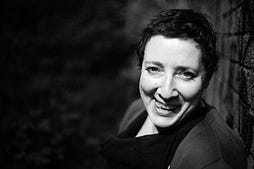
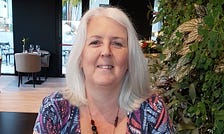
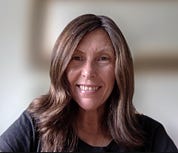

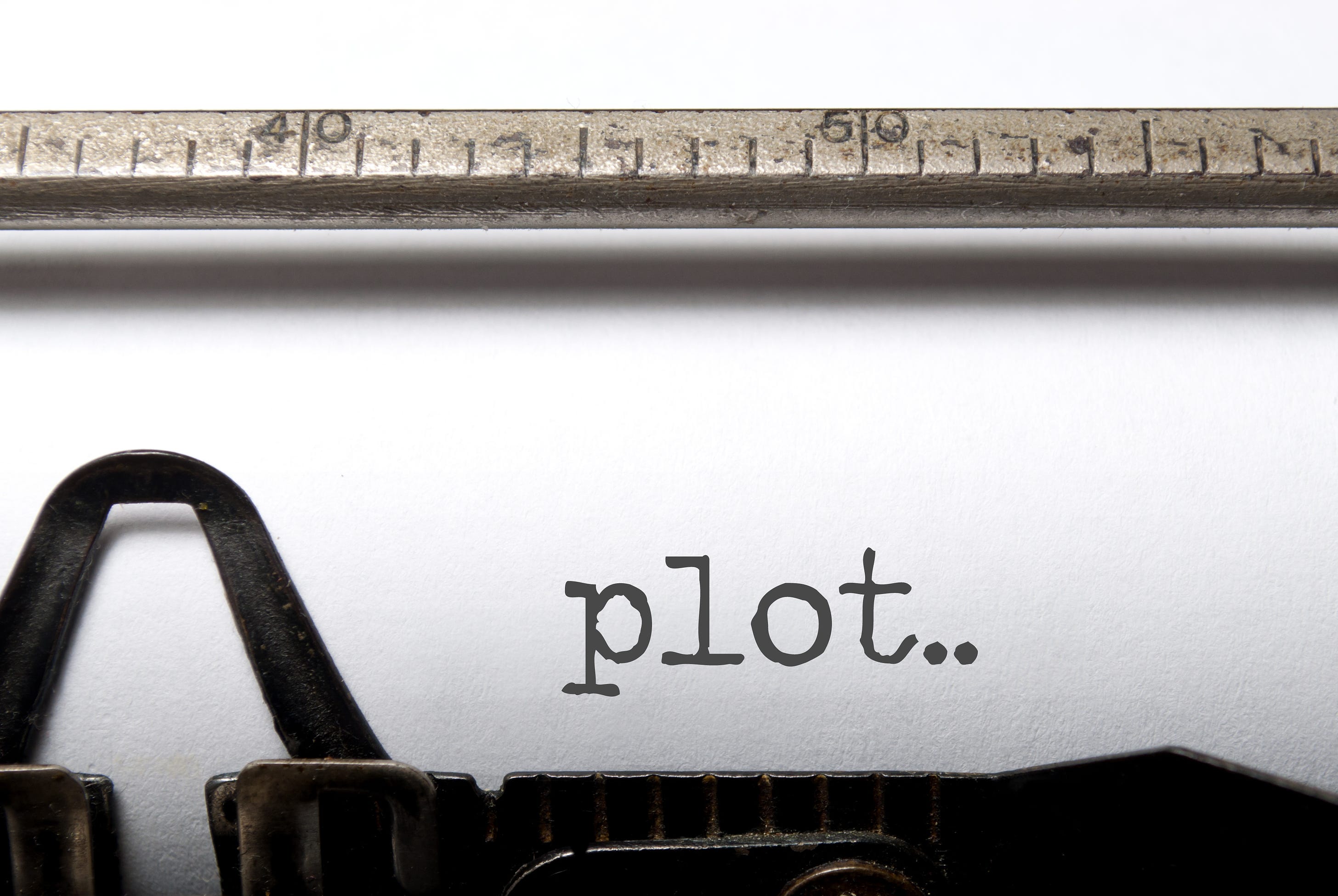
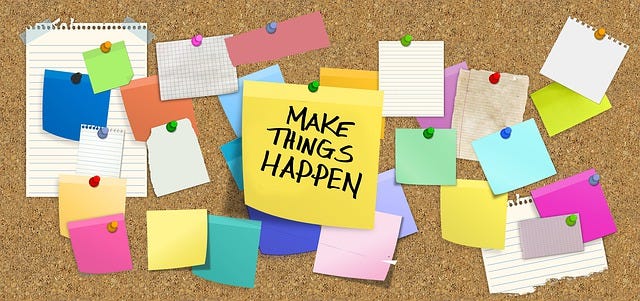

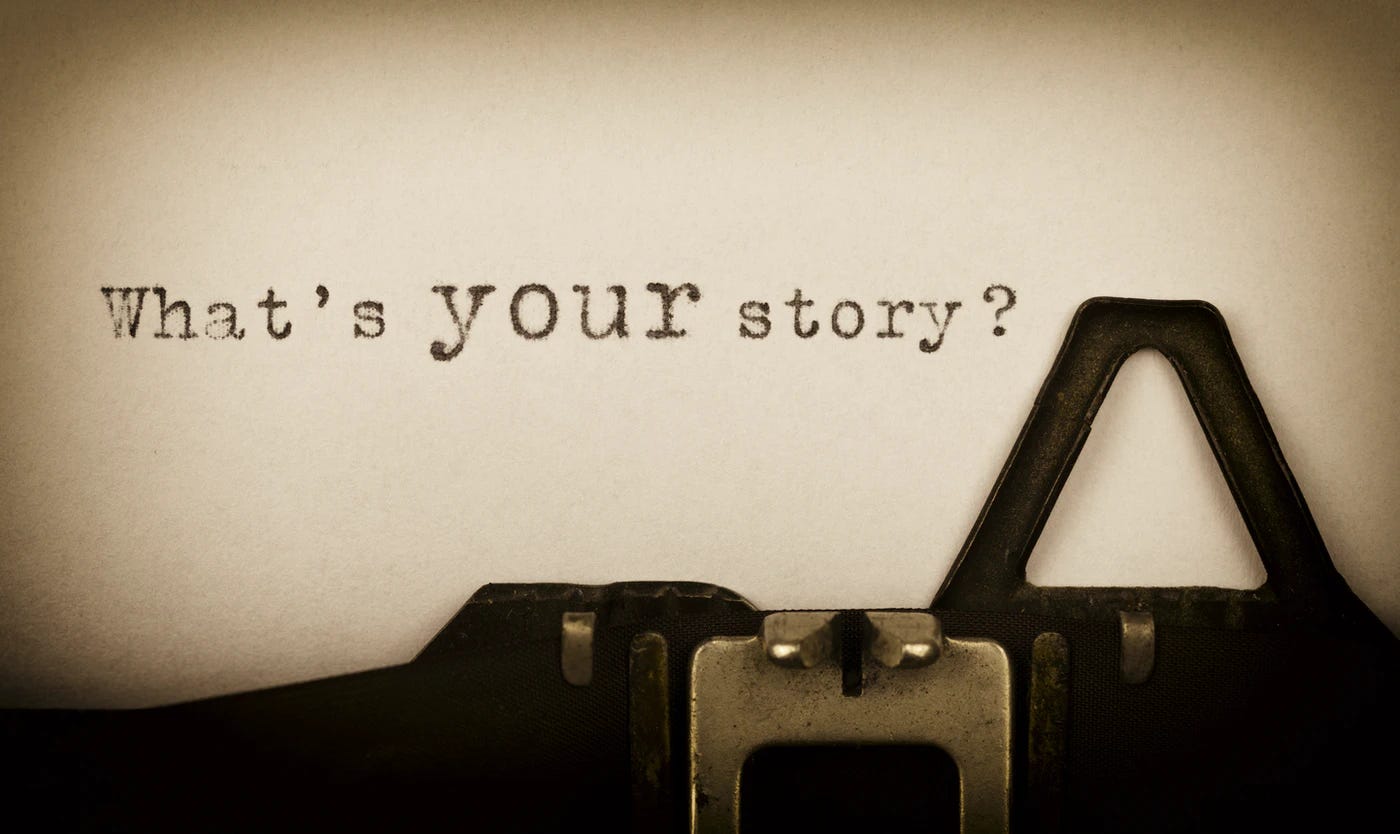
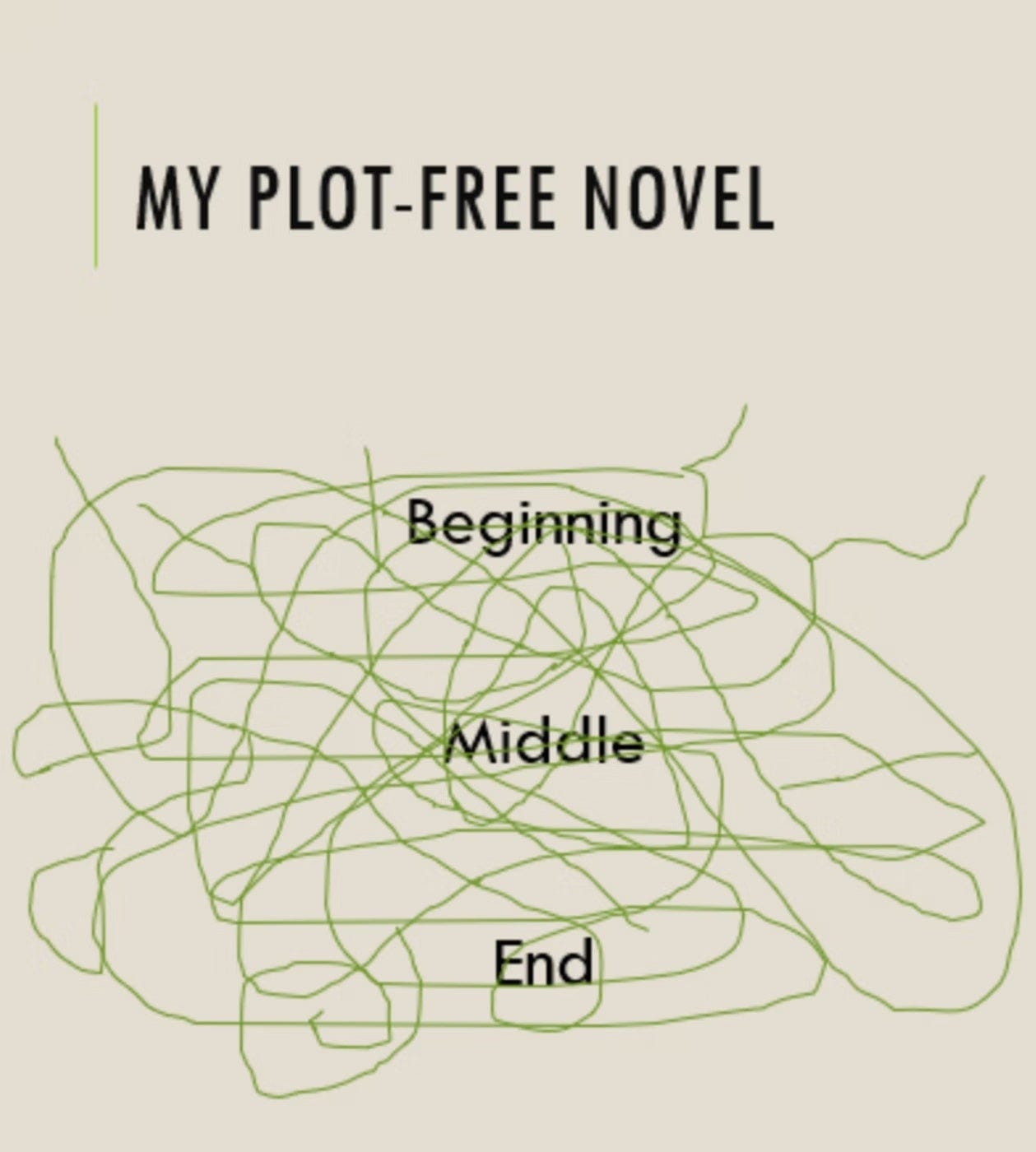
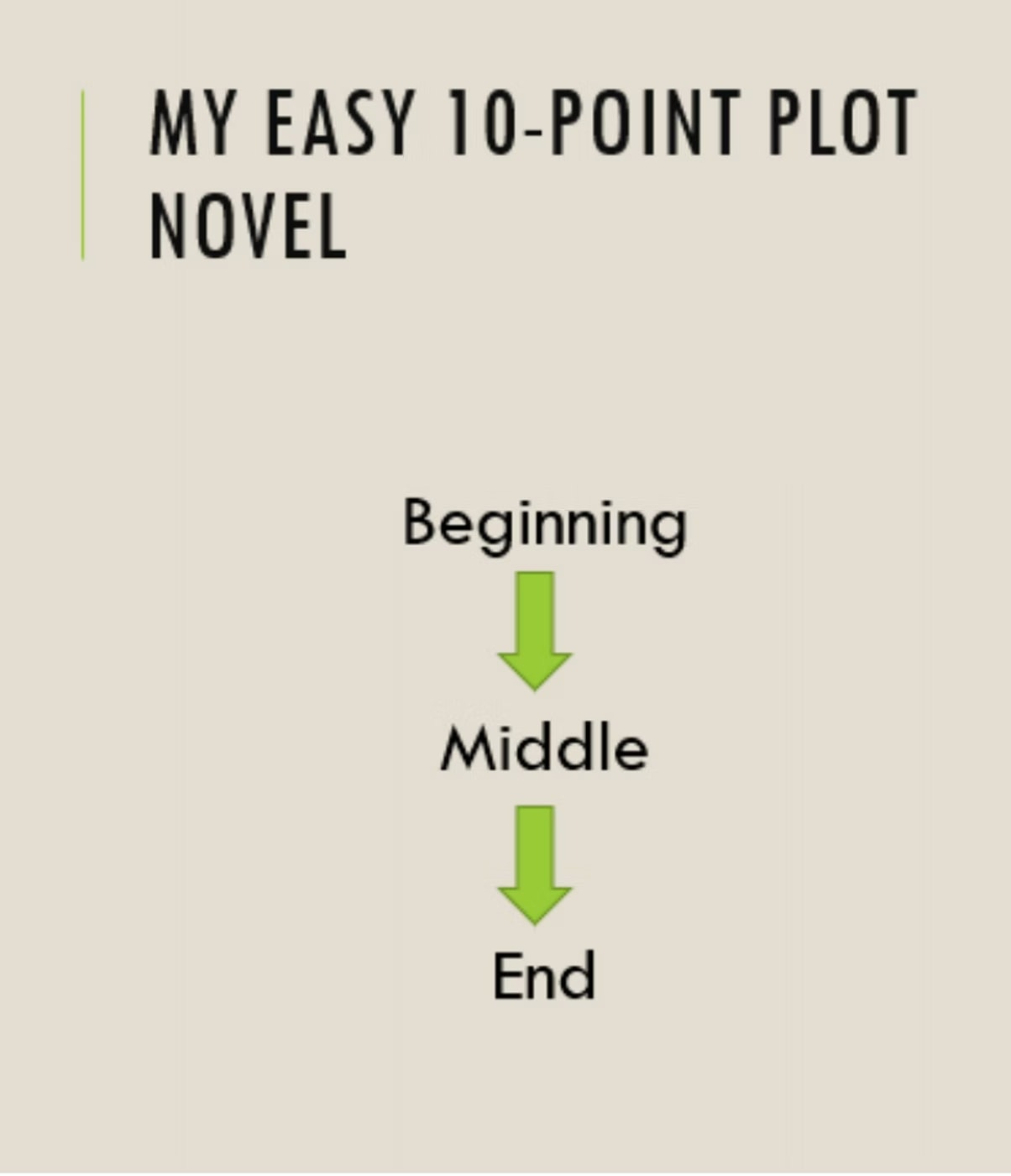
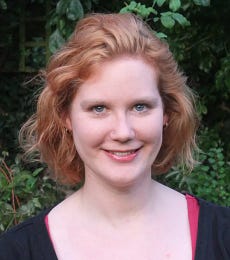
No comments:
Post a Comment